Blog
Can Dogs Eat Cabbage? Yes! Here’s Everything You Need to Know
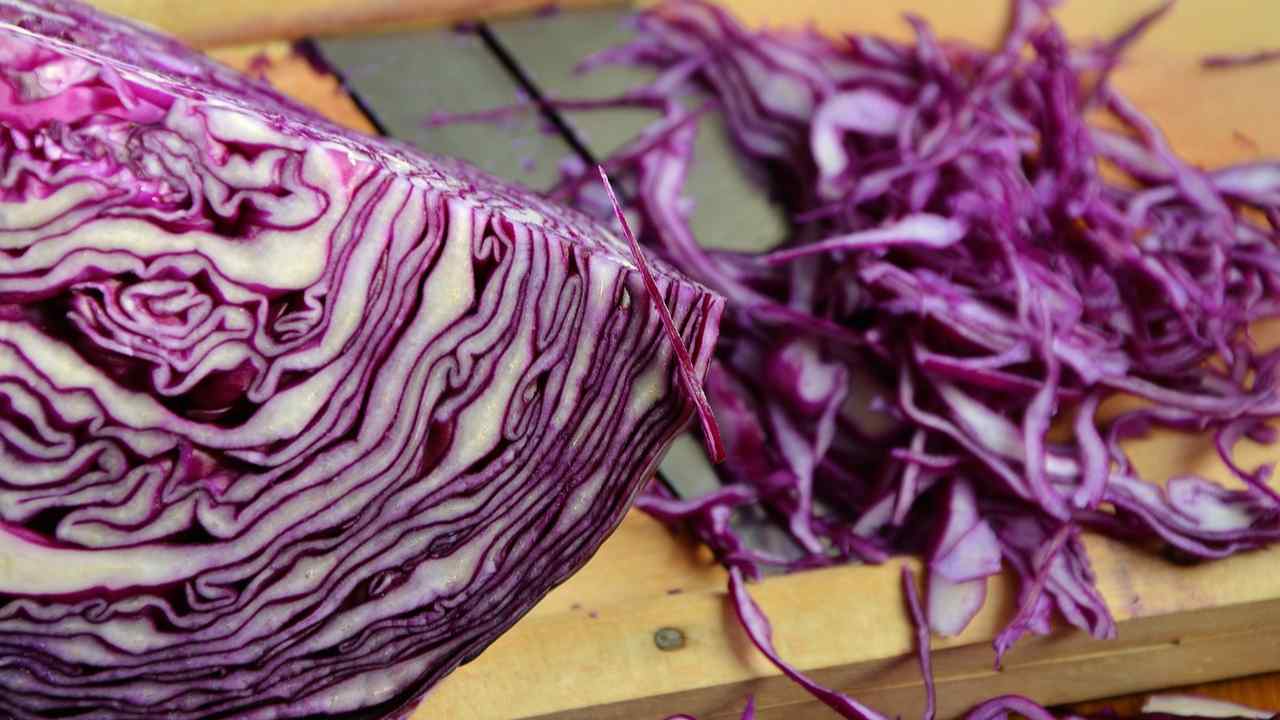
As a proud dog parent, you want to make sure your furry friend is getting all the nutrients they need for a healthy, happy life. And while dogs aren’t exactly known for being picky eaters (let’s be real, they’ll eat just about anything!), that doesn’t mean you should let them chow down on every scrap from your plate.
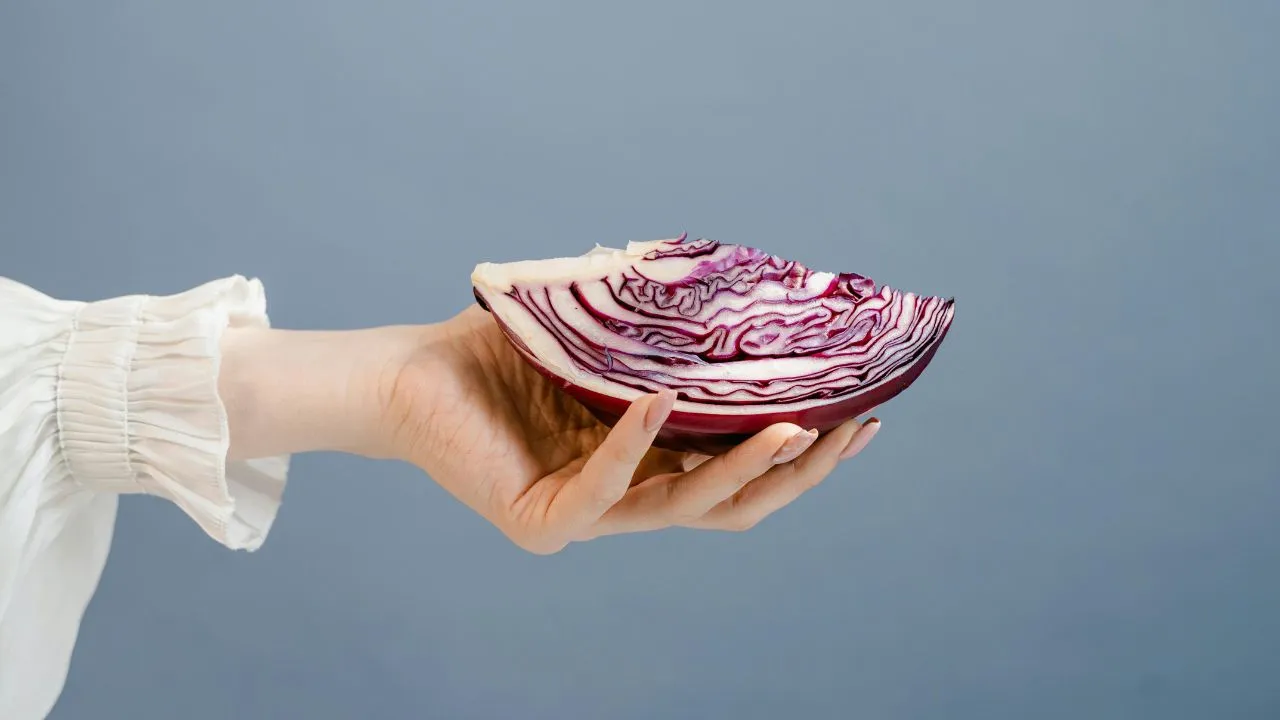
So, what about cabbage? This versatile veggie is packed with fiber, vitamins, and minerals that are great for humans—but can dogs eat cabbage, too? The short answer is yes. Dogs can safely eat cabbage as an occasional treat. However, there are a few important things to keep in mind before adding this cruciferous vegetable to your pup’s diet.
Let’s dig in!
Contents
What Kind of Cabbage Can Dogs Eat?
With over 400 varieties of cabbage grown worldwide, you might be wondering which types are safe for your canine companion. The good news is that as long as the cabbage is cooked, your dog can enjoy pretty much any kind. Here are some of the most popular dog-friendly varieties you’re likely to find at your local grocery store:
* Red cabbage
* Green cabbage
* Savoy cabbage
* Napa cabbage
* Bok choy
But wait, there’s more! Dogs can also munch on other members of the cabbage family, like Brussels sprouts and kale. That’s right, kale is actually a type of loose-leaf cabbage that’s closely related to its wild, uncultivated cousins.
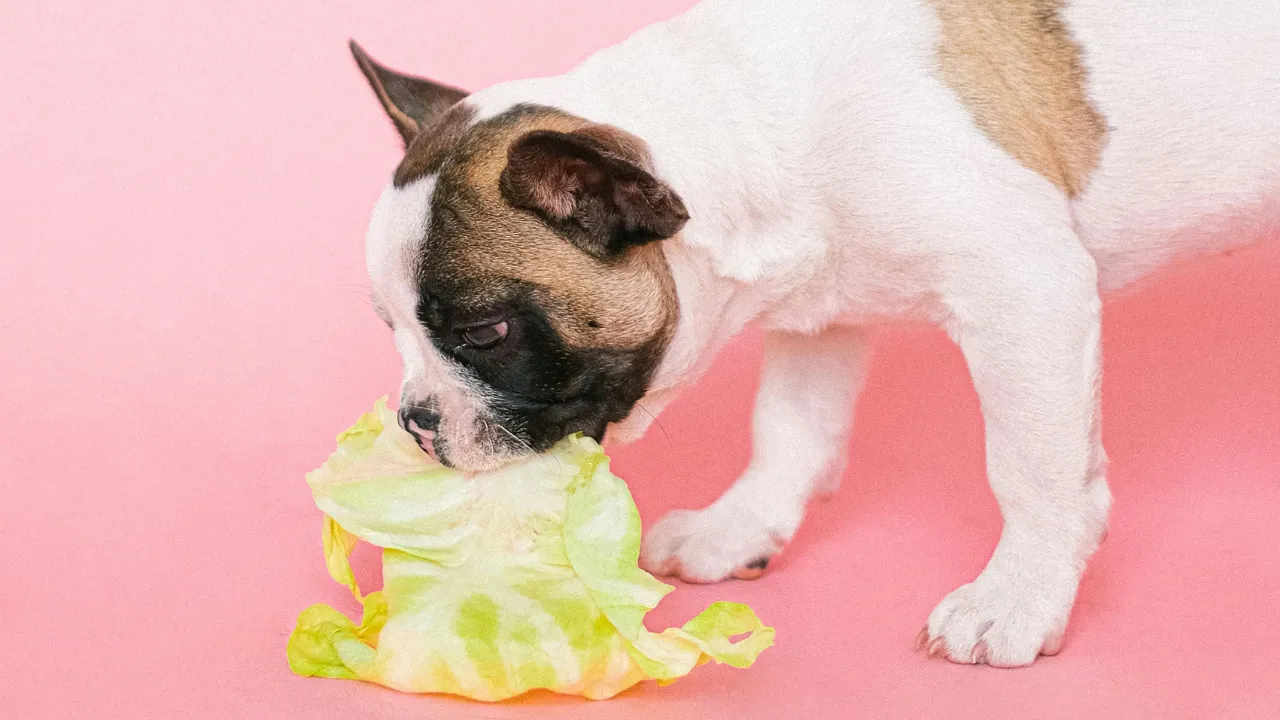
How to Prepare Cabbage for Your Dog
Now that you know which types of cabbage are safe for your pup, let’s talk about how to serve it up. Here are a few tips to keep in mind:
1. Cook It First
While raw cabbage won’t necessarily harm your dog, it’s much easier for them to digest when it’s cooked. The cooking process softens the tough fibers, reducing the risk of digestive issues like gas, bloating, and stomach upset. Trust us, your dog (and your nose) will thank you!
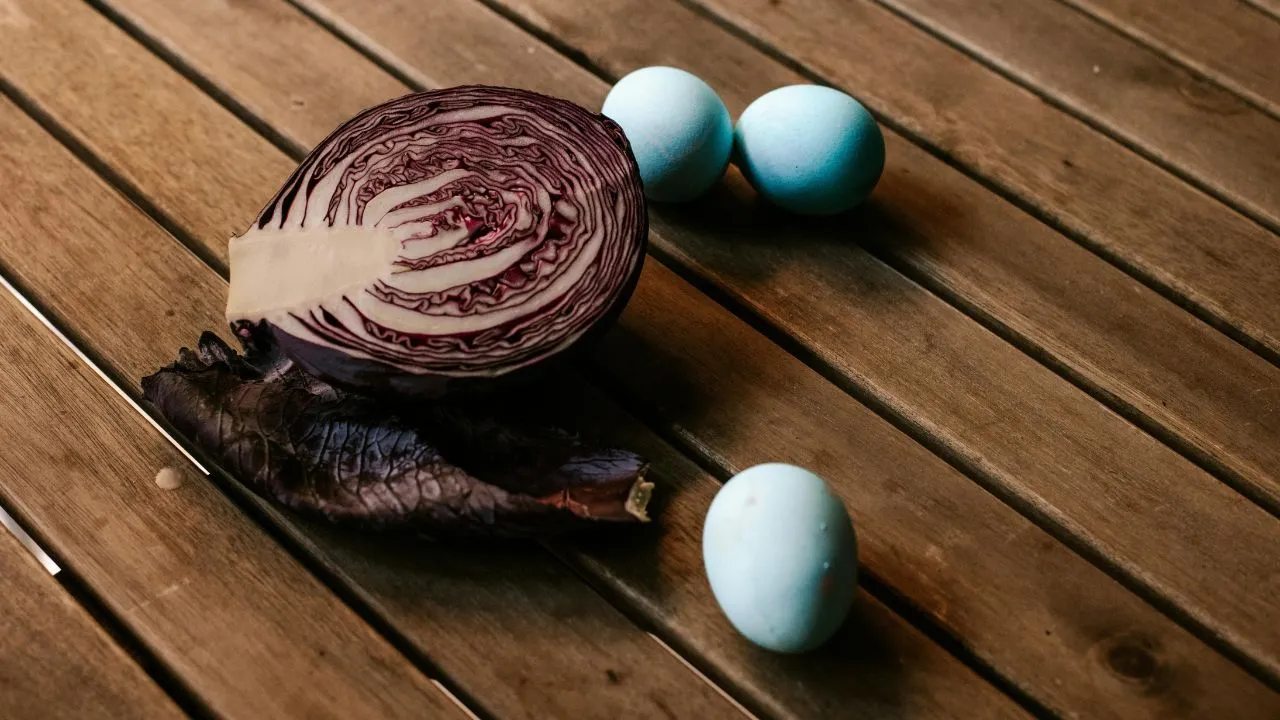
2. Skip the Butter and Seasonings
As tempting as it may be to jazz up your dog’s cabbage with some butter or spices, it’s best to keep things simple. Butter can trigger pancreatitis in dogs, and certain seasonings like garlic and onion can be toxic to them. Opt for plain, cooked cabbage for a healthy and dog-friendly treat.
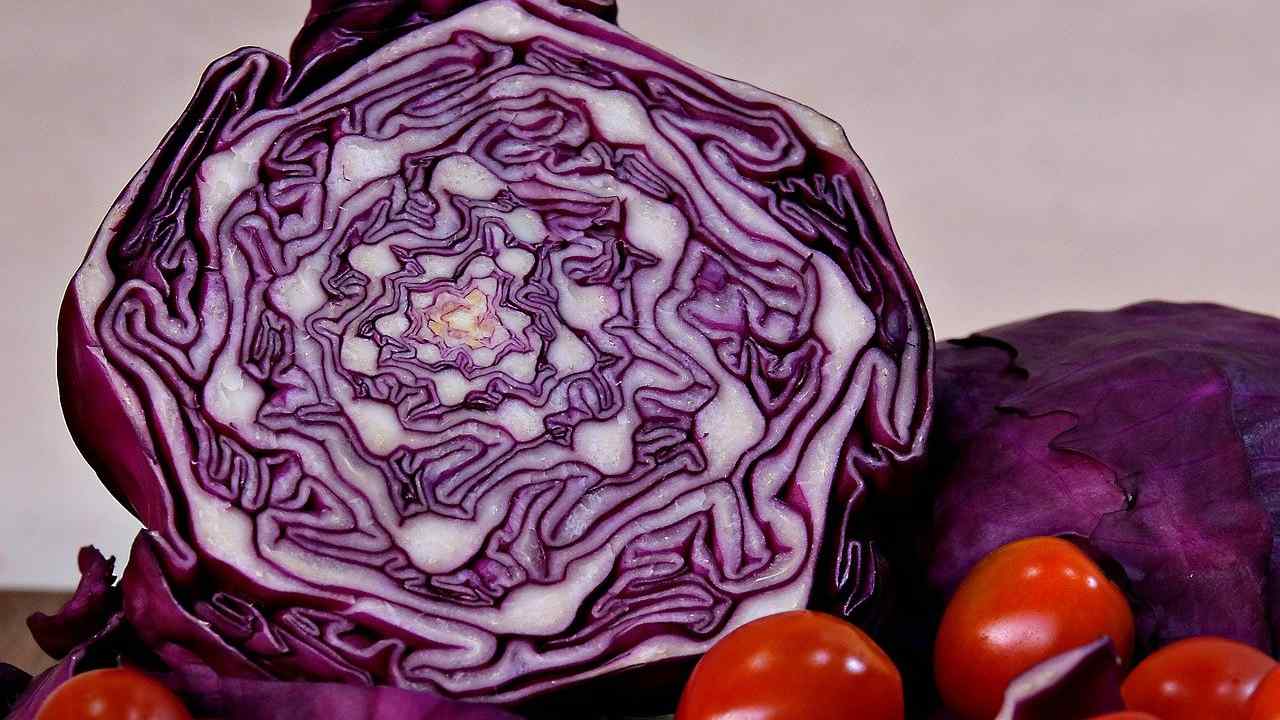
3. Keep Portions in Check
Even with cooked cabbage, it’s important not to overdo it. Too much cabbage can upset your dog’s digestive system and potentially cause thyroid issues if consumed in excess. As a general rule, start with very small quantities and gradually introduce cabbage into your dog’s diet. Smaller breeds can handle about 1 teaspoon, while larger breeds may tolerate a couple of tablespoons. Monitor your dog’s reaction closely and adjust the serving size as needed.
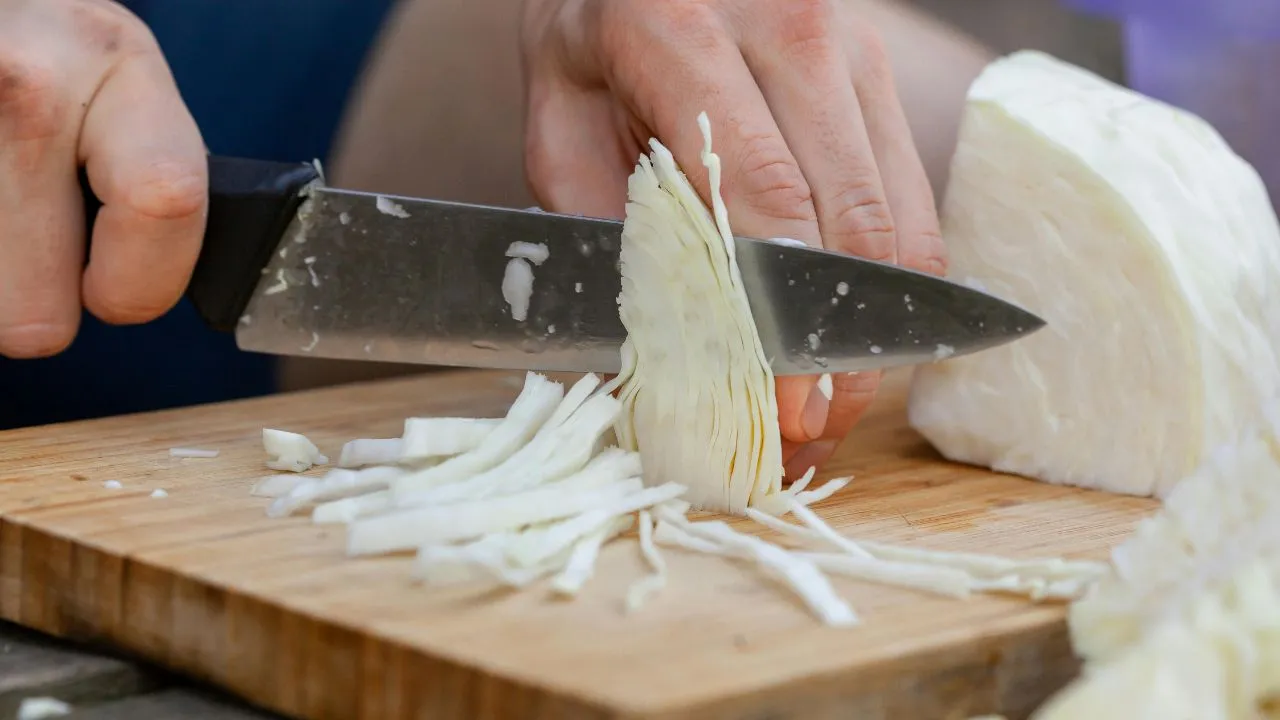
4. Mix It Up
There are plenty of ways to incorporate cooked cabbage into your dog’s diet, so don’t be afraid to get creative and experiment with different techniques. One simple option is to chop the cabbage into small, bite-sized pieces and mix it directly into your dog’s regular food. This works especially well if you’re feeding your pup a homemade or raw diet, as you can easily control the amount of cabbage and other ingredients.
Another idea is to use cooked cabbage as a tasty topper for your dog’s kibble or wet food. Simply sprinkle a small amount over their regular meal to add some extra flavor, texture, and nutrition. This can be a great way to entice picky eaters or add some variety to your dog’s daily routine.
SHOP NOW
If your dog really enjoys the taste of cabbage, you can even offer it as a standalone treat. Try stuffing cooked cabbage leaves with a small amount of lean meat, low-fat cheese, or other dog-friendly fillings for a fun and interactive snack. You can also freeze small pieces of cooked cabbage for a refreshing summer treat that will keep your pup cool and hydrated.
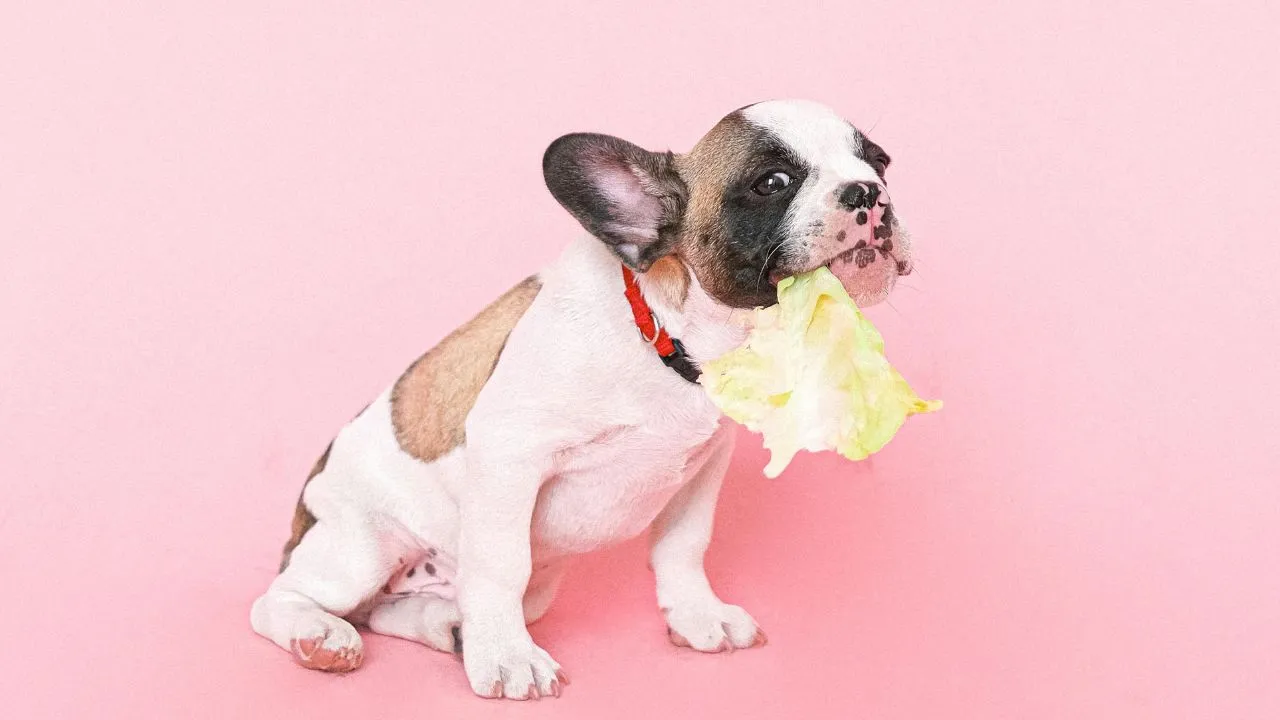
For an extra nutrient boost, consider blending cooked cabbage with other dog-safe fruits and veggies like carrots, apples, or sweet potatoes to create a healthy puree. You can spoon this mixture over your dog’s food, use it as a filling for Kong toys or puzzle feeders, or freeze it in ice cube trays for a long-lasting treat.
No matter how you choose to serve it, just remember to keep portions small and introduce cabbage gradually to avoid digestive upset. With a little trial and error, you’ll find plenty of delicious ways to make this nutritious veggie a regular part of your dog’s diet.
The Benefits of Cabbage for Dogs
So, why should you consider adding cabbage to your dog’s menu? Here are four key health benefits, according to veterinarian Dr. Hutchins:
1. Digestive support
Thanks to its high fiber content, cooked cabbage can maintain healthy digestion and regular bowel movements in dogs. It may even help alleviate constipation when consumed in moderation.
2. Nutrient-dense
Cabbage is packed with vital vitamins and minerals, such as vitamin A, vitamin C, vitamin K, potassium, calcium, manganese, and magnesium. These nutrients contribute to various aspects of your dog’s well-being, from sturdy bones and joints to robust muscles and nerves.
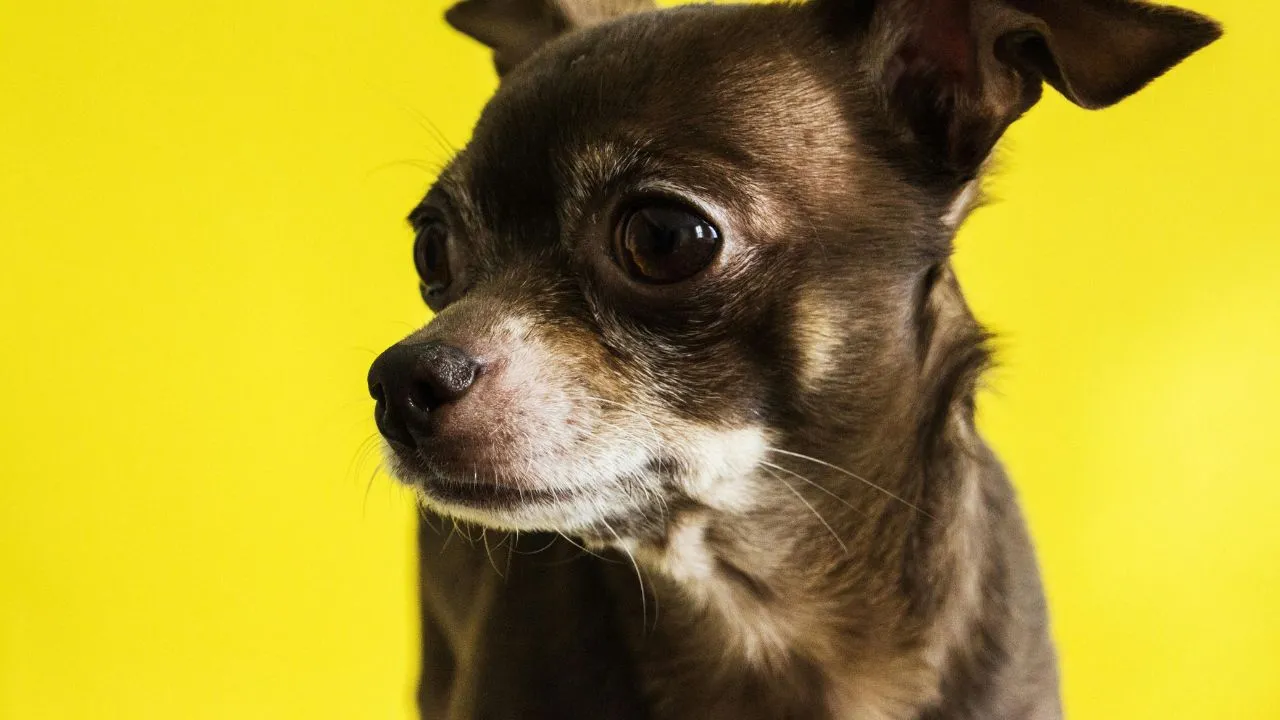
3. Weight management
If your pup is watching their waistline, cabbage can be a great low-calorie treat option. Its fiber content also helps keep your dog feeling full and satisfied between meals.
4. Antioxidant power
Cabbage is rich in antioxidants that help boost your dog’s immune system and defend against oxidative stress and free radicals. This means a healthier, more resilient pup overall.

Potential Risks and Precautions
While cabbage is generally safe for dogs, there are a few potential risks to be aware of:
1. Gastrointestinal discomfort
Eating too much cabbage, especially in its raw form, can cause gas, bloating, and digestive upset due to its high fiber content. Cooking the cabbage can help mitigate these issues, but it’s still important to keep portions in check.

2. Thyroid impact
Cabbage contains natural compounds that can interfere with iodine absorption and disrupt thyroid function if consumed in large amounts over time. This is more of a concern for dogs with pre-existing thyroid issues, but it’s something to be mindful of for all pups. Cooking the cabbage can help neutralize these compounds.
3. Choking hazard
Because cabbage is fibrous and can be tough to chew, it’s important to cut it into very small pieces before giving it to your dog. This reduces the risk of choking, especially for enthusiastic eaters who tend to gulp their food.

Other Dog-Friendly Fruits and Veggies
If your dog enjoys cabbage, chances are they’ll love these other fresh, healthy treats too:
Vegetables:
* Carrot
* Celery
* Pumpkin
* Potatoes
* Sweet potatoes
Fruits:
* Apple slices (without seeds or core)
* Blueberries
* Melon chunks (cantaloupe, watermelon)
* Pear slices (without seeds or core)
* Pitted cherries
* Raspberries
* Strawberries
Remember, these should be offered in moderation as part of a balanced diet. Your dog would happily share their kibble with you if given the chance, so why not return the favor with a special fruity or veggie treat now and then?

Final Words
While cabbage provides many health benefits, it’s not an essential part of your dog’s daily nutrition plan. The foundation of a healthy canine diet should always be high-quality, balanced dog food that meets your pup’s specific nutritional requirements. Cabbage and other fresh produce should be viewed as occasional treats or meal toppers to add variety and extra nutrients.
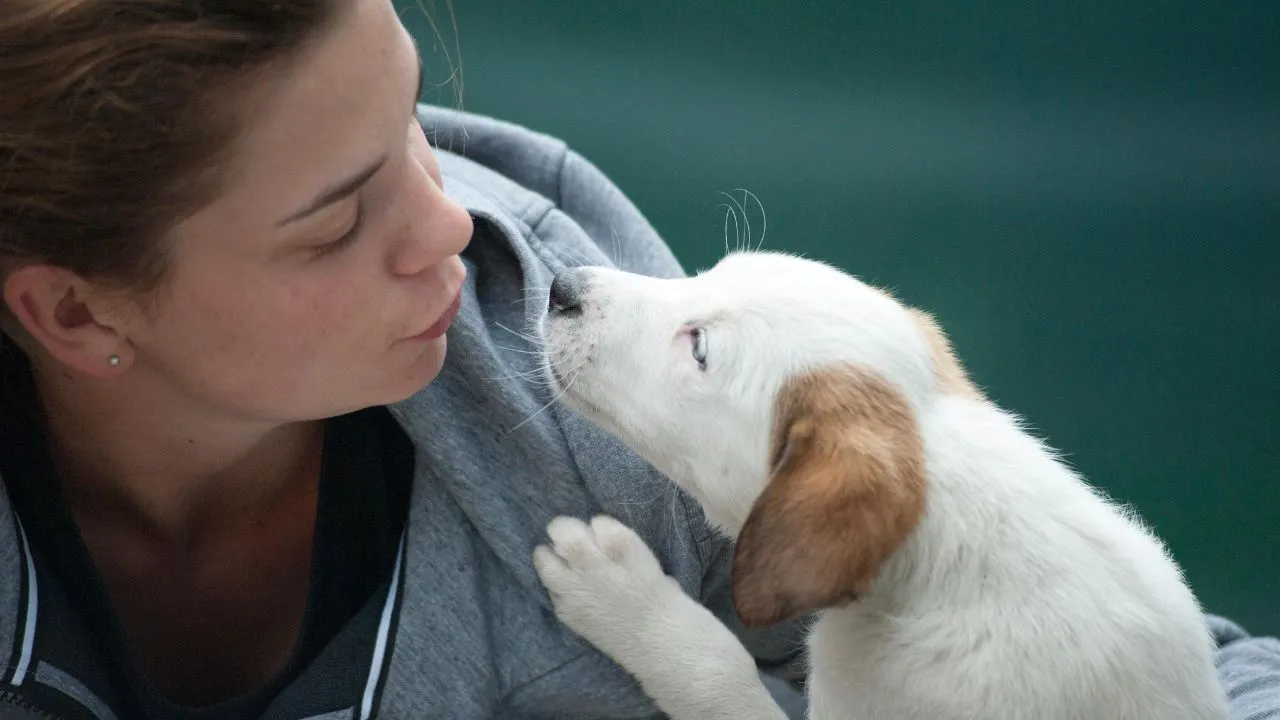
It’s important to recognize that every dog is unique, with their own individual health needs and taste preferences. What works well for one dog may not be suitable for another. Before making any substantial changes to your dog’s diet, it’s always best to consult with your vet, who can give you some personalized guidance based on your dog’s specific circumstances.